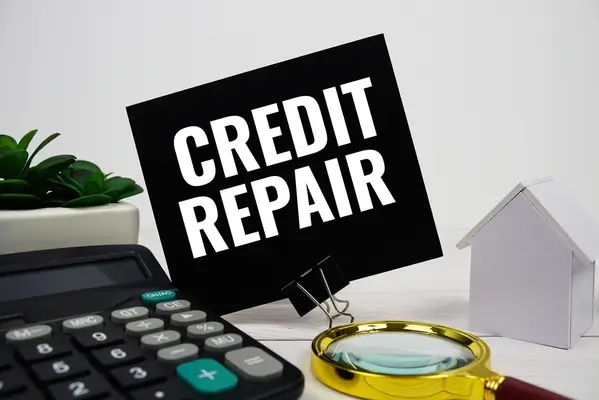Do-It-Yourself Credit Repair: Fix Your Bad Credit Yourself

Credit repair companies have been around for decades because they produce results. But does that mean you need to hire one? Absolutely not.
You can repair your credit yourself and save money by following the steps outlined in this guide.
This guide provides a complete roadmap for do-it-yourself credit repair, including detailed instructions, current resources, and helpful tips.
What is Credit Repair?
Credit repair refers to disputing inaccurate or negative information on your credit report. Credit repair companies typically do this for a fee, but the same results can be achieved independently.
Here’s how it works:
- Disputing Errors: The credit bureau must verify any item you dispute within 30 days. If the creditor cannot validate the account, the entry must be removed from your report.
- Validating Debt: Creditors must prove the debt is yours and accurate. If they fail, it’s deleted.
Repairing your credit can significantly impact your financial life, improving your chances of securing better loan terms and interest rates.
How Bad Credit Affects Your Financial Life
Bad credit doesn’t just limit your ability to borrow—it’s costly. Poor credit scores can result in higher interest rates on loans and credit cards, costing you thousands of dollars over time.
Key Consequences of Bad Credit:
- Higher interest rates on mortgages, auto loans, and personal loans.
- Difficulty qualifying for credit cards or rental housing.
- Increased insurance premiums.
Having bad credit can feel limiting, but using this guide, you can take the first steps toward improving your financial health.
How to Increase Your Credit Score
Here are actionable tips to help you improve your credit score:
Key Strategies:
- Pay Down Balances: Lower your credit utilization ratio to improve your score.
- Dispute Errors: Use the dispute process to remove inaccurate entries.
- Make On-Time Payments: Payment history is the largest factor in your score—pay bills on time consistently.
Table: Impact of Credit Score on Loan Terms
| Credit Score Range | Loan Interest Rate (Example) | Monthly Payment on $250k Mortgage |
|---|---|---|
| 580-639 | 7.5% | $1,748 |
| 640-699 | 6.0% | $1,498 |
| 700-749 | 5.5% | $1,420 |
How to Fix Your Credit Yourself
You don’t need a professional credit repair service. By following these steps, you can effectively repair your credit on your own:
1. Get a Copy of Your Credit Report
Visit AnnualCreditReport.com to access your free credit reports from the three major credit bureaus. You’re entitled to one free report from each bureau annually.
2. Identify Negative Accounts
Highlight any negative items, errors, or outdated information. Look for:
- Late payments
- Collection accounts
- Incorrect personal details
3. Dispute Errors
Credit bureaus allow disputes via mail, phone, or online. Provide documentation to support your claim.
Credit Bureau Dispute Information
| Credit Bureau | Online Dispute | Phone | Mail Address |
|---|---|---|---|
| TransUnion | Dispute Online | 800-916-8800 | P.O. Box 2000, Chester, PA 19016 |
| Experian | Dispute Online | 714-830-7000 | P.O. Box 4500, Allen, TX 75013 |
| Equifax | Dispute Online | 800-846-5279 | P.O. Box 740256, Atlanta, GA 30374 |
Get Collection Accounts Removed
Collections can severely impact your credit score. However, paying off collections doesn’t automatically improve your score unless the creditor agrees to a “pay for delete.”
Steps to Remove Collections:
- Dispute First: Challenge the account’s validity with the credit bureau.
- Negotiate Pay-for-Delete Agreements: Offer to settle the debt in exchange for removal from your report.
- Send Debt Validation Letters: If the collector can’t validate the debt, it must be removed.
Stay Current on Your Bills
Maintaining good payment habits is critical while repairing your credit. Missing payments can add new negative marks, undoing your progress.
Tips for Staying Current:
- Set up automatic payments for all accounts.
- Monitor your due dates with apps or calendars.
- Avoid opening new credit accounts during this process.
Pay Down Credit Card Debt
Credit utilization is a major factor in your score. Aim to reduce balances below 30% of your credit limit, ideally under 10%.
Example:
If you have a credit card with a $10,000 limit:
- Balance of $3,000 = 30% utilization (Good)
- Balance of $1,000 = 10% utilization (Excellent)
Get Added as an Authorized User
If a trusted family member or friend adds you as an authorized user on their credit card, their account history will be reflected on your report. This can significantly boost your score, especially if the account is in good standing.
Benefits of Becoming an Authorized User:
- No credit application required.
- Inherits the account’s positive payment history.
- Immediate improvement to credit age and utilization.
Frequently Asked Questions
What is credit repair?
Credit repair involves disputing inaccurate or outdated items on your credit report to improve your credit score.
How do I dispute items on my credit report?
You can dispute items by contacting the credit bureaus (Equifax, Experian, TransUnion) directly through their online platforms, mail, or phone.
How long does the dispute process take?
Credit bureaus typically have 30 days to investigate disputes and respond with a resolution.
Can paid collections still affect my credit score?
Yes, unless you negotiate a pay-for-delete agreement with the creditor, paid collections remain on your report and may still impact your score.
How often should I check my credit report?
Check your report at least once a year through annualcreditreport.com or more frequently if actively repairing your credit.
Does paying off debt improve my credit score?
Paying off debt reduces your credit utilization, which can significantly boost your score, especially for credit cards.
Can credit repair companies guarantee results?
No, reputable credit repair companies cannot guarantee results as the process depends on the validity of disputes and creditor responses.
What is the quickest way to improve my credit score?
Pay down credit card balances and address inaccuracies on your credit report for immediate improvements.
The Bottom Line
Taking control of your credit repair journey can significantly improve your financial future. While credit repair companies can help, the same results are achievable with dedication and the right tools.
By disputing errors, negotiating with creditors, and managing your accounts responsibly, you can enhance your credit profile without professional assistance.
Remember to monitor your progress, stay consistent, and focus on building positive credit habits over time. Whether you’re preparing for a mortgage or simply seeking financial stability, repairing your credit yourself can save money and give you the confidence to achieve your goals.
Start today and reclaim your financial independence!






